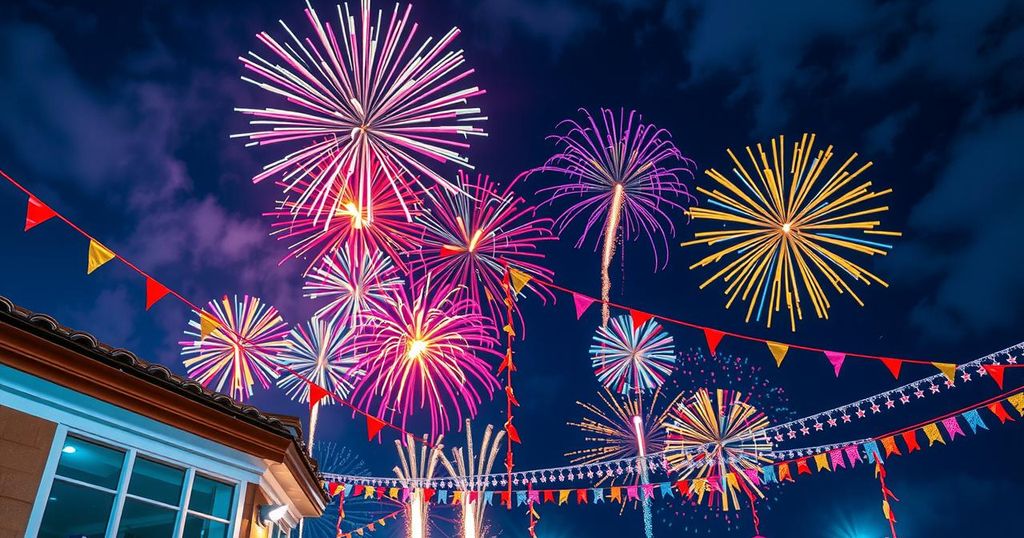This article discusses Ghana’s 68th Independence Day, which is notably being celebrated in a scaled-down format due to economic challenges. Celebrations have been moved to the Jubilee House with only about 500 participants, reflecting financial constraints and public sentiment surrounding the nation’s economic struggles. Felix Kwakye Ofosu outlines that this year’s costs are significantly reduced, emphasizing the ongoing importance of the day despite current adversities.
Ghana proudly marks its 68th Independence Day today. Unlike previous celebrations hosted at the historic Black Star Square, this year’s festivities will occur at the Jubilee House, the government’s official residence. This shift signifies a notable change in the nation’s celebration due to ongoing economic challenges faced by the country.
Felix Kwakye Ofosu, Minister of State for Government Communications, attributed the decision to hold a less extravagant ceremony to financial limitations. He stated, “President Mahama took the decision a few weeks ago to scale down the celebration and bring it to the presidency. There’s a vast compound that can accommodate hundreds of Ghanaians.”
Historically, Independence Day festivities have boasted large crowds, including thousands of students and dignitaries marked by elaborate parades. This year, however, participation is severely limited, with approximately 500 individuals, including security personnel and schoolchildren, slated to attend the ceremony.
The decision to condense the celebration underscores the gravity of Ghana’s economic situation, which has been marred by high inflation, currency depreciation, and mounting public debt. Citizens are increasingly facing economic difficulties, including rising food costs and utility rates, making the previous year’s expenditure of GH¢15 million for the event seem excessive in the current environment.
Kwakye Ofosu emphasized the cost-effectiveness of this year’s event, announcing it would only require one-tenth of last year’s budget. He reassured that scaling down the celebration does not diminish its importance, stating, “The Independence Day celebration is one that President Mahama takes very seriously.”
The subdued nature of the event has elicited mixed reactions among the citizens. While some appreciate the government’s effort to economize, others believe that the significance of such a cherished national tradition should not be compromised, regardless of prevailing economic conditions.
As Ghana commemorates its 68 years of independence from colonial rule, it does so amidst a backdrop of economic hardship rather than grand military displays or vibrant parades. This tempered recognition highlights the resilience of independence forged through struggles faced by past leaders like Kwame Nkrumah. The implications of these cost-cutting measures may signal a more conscientious approach to governance or reflect continued economic difficulties, remaining to be seen.
In conclusion, Ghana’s 68th Independence Day celebration reflects the country’s current economic challenges, marked by the government’s decision to scale down festivities due to financial constraints. While the event signifies resilience and national pride, the muted celebration also serves as a poignant reminder of the nation’s struggles. The mixed public reactions reveal a community grappling with both the need for fiscal responsibility and the desire to honor a significant national tradition.
Original Source: www.myjoyonline.com






